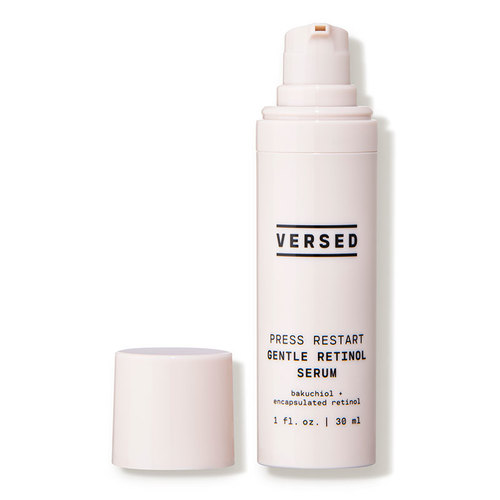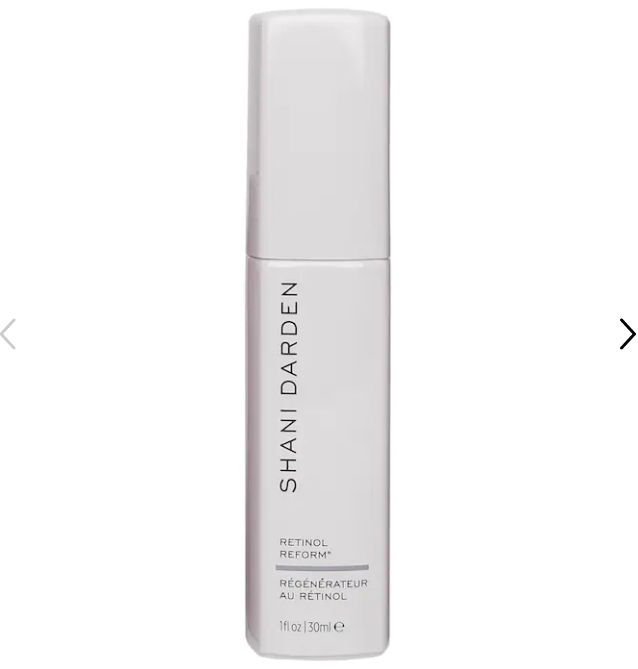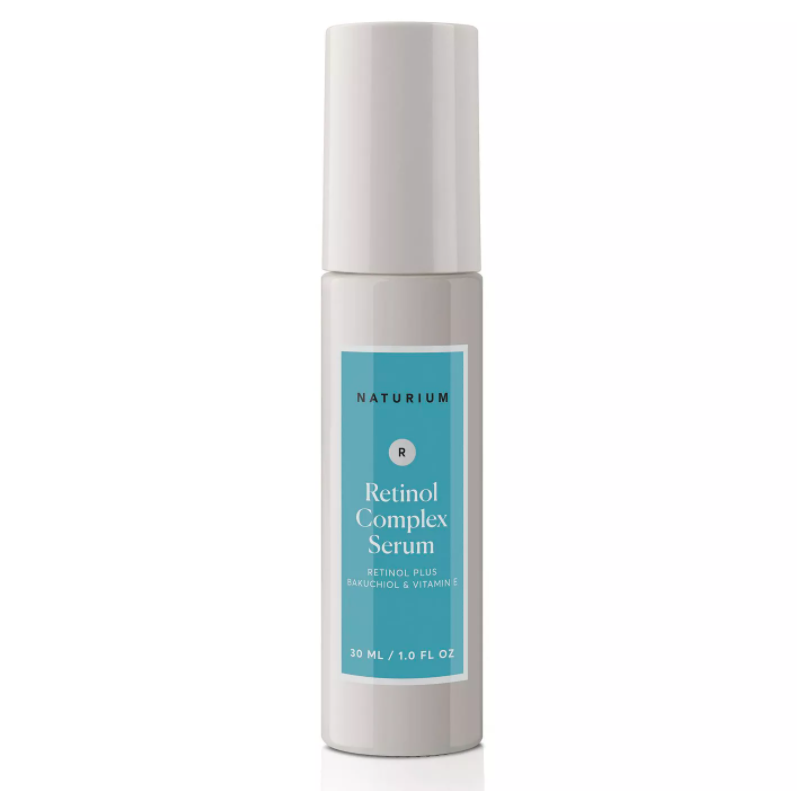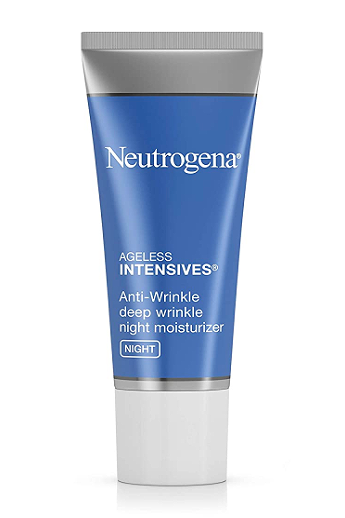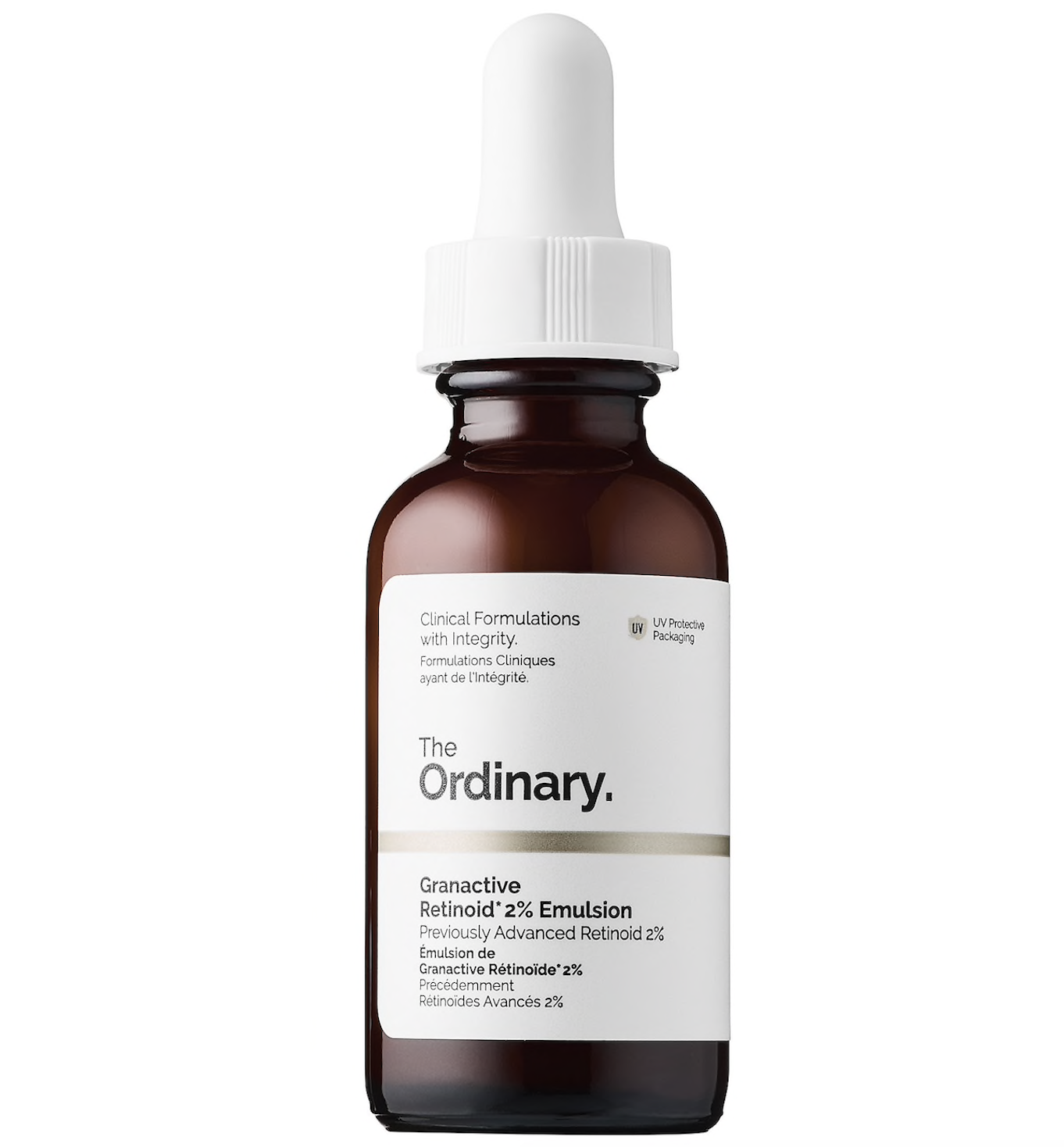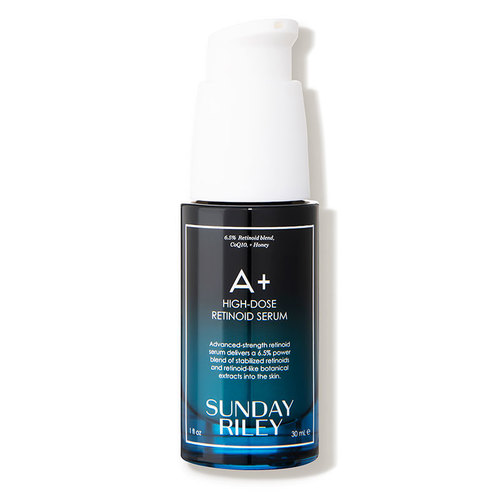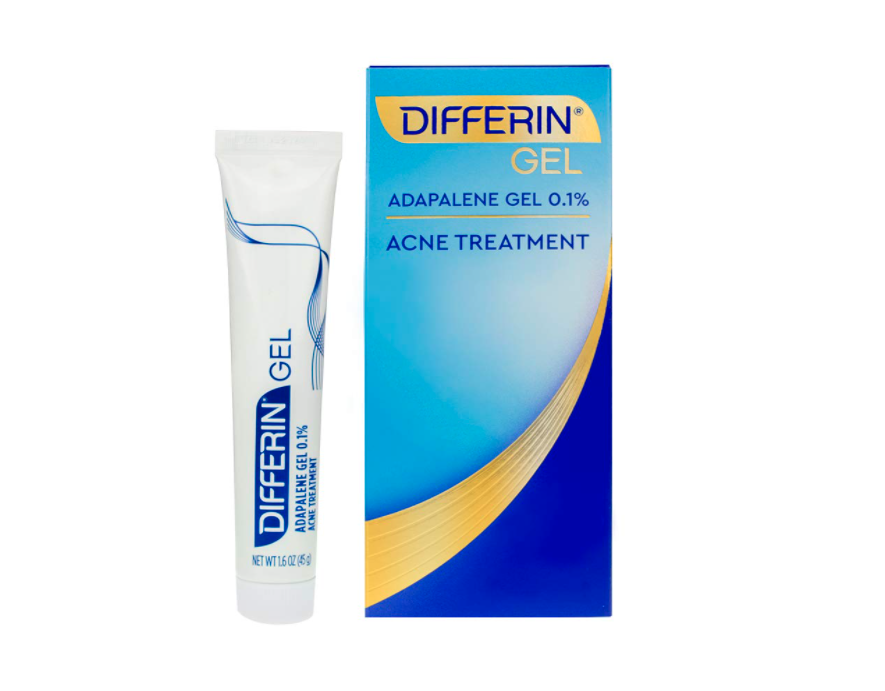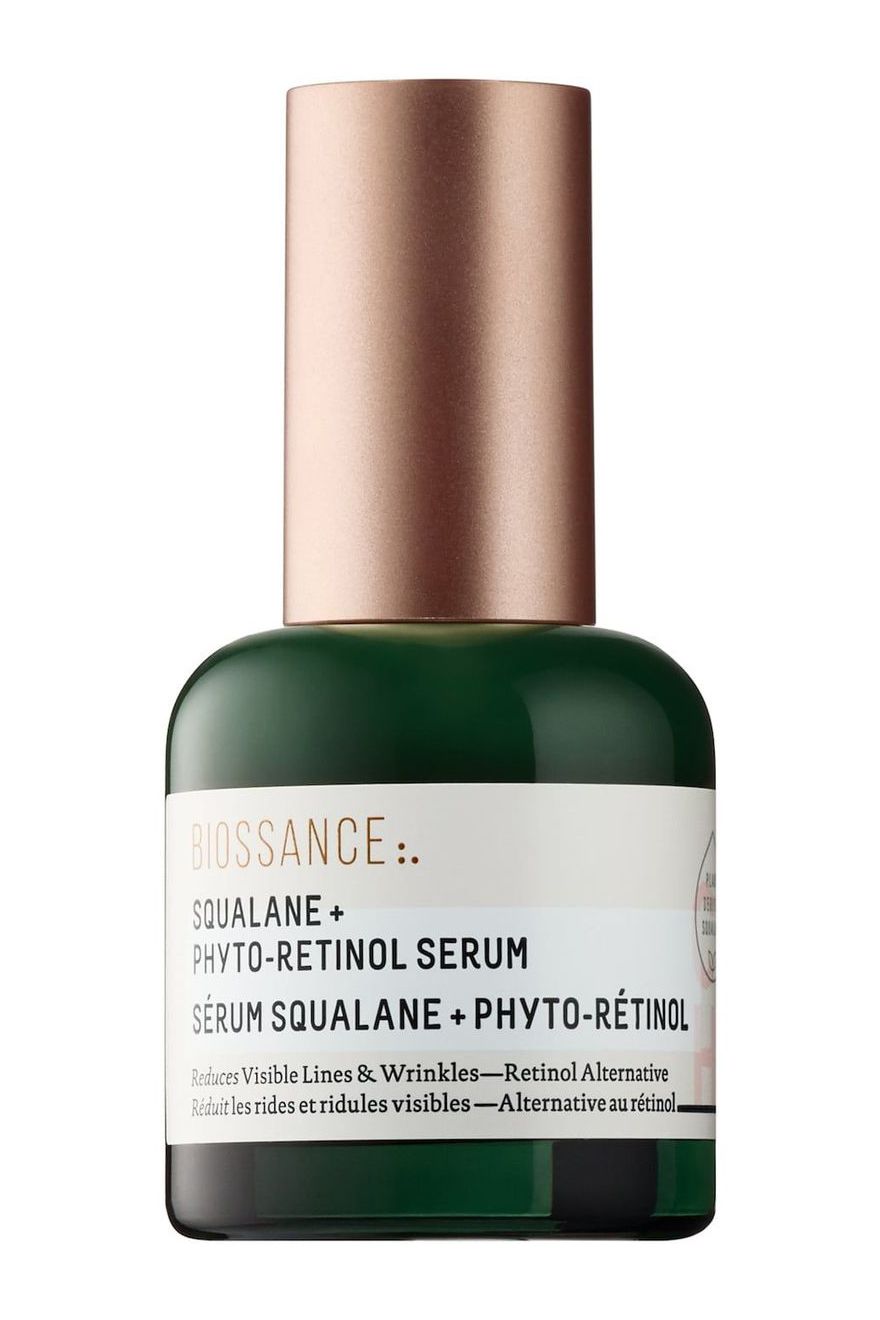Retinol vs. Retinoids: A Dermatologist Breaks It Down
Your best skin awaits.
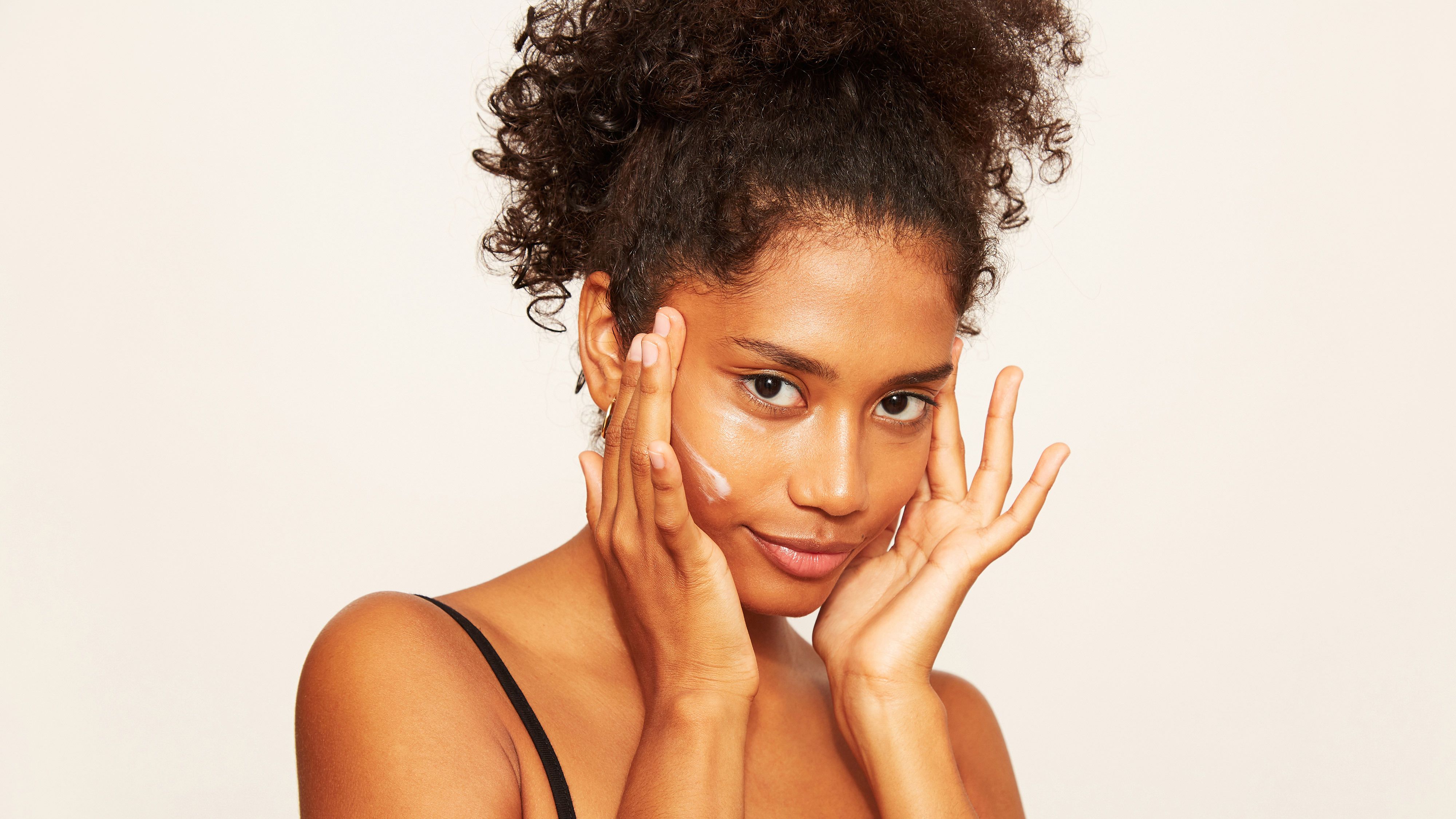
Ask just about any respected skin pro, and they'll tell you that incorporating a retinoid product into your skincare routine is non-negotiable. Retinoids, a family of ingredients derived from vitamin A, are potent ingredients that have been clinically proven to diminish acne, prevent wrinkles, fade dark spots, reverse sun damage, and more. One particularly common form of retinoid is retinol, which is often found in serums and moisturizers, and can be purchased over the counter. A stronger, prescription-only iteration is tretinoin (better known by the brand name Retin-A). Confused? While the terms are often used interchangeably, it's important to understand that there are some distinct differences.
To help navigate the ins and outs of the retinoid family, I spoke with board certified dermatologist and co-founder of 4.5.6 Melanin Skincare Dr. Carlos A. Charles. Keep reading as he breaks down the key differences, best practices for use, and noteworthy products.
Retinoids
What is a retinoid?
"Retinoids are the gold standard for treating acne and various skin concerns such as fine lines, improving skin texture, and reversing signs of hyperpigmentation," explains Dr. Charles. "When used topically, retinoids help to increase skin cell turnover and build collagen among other vital functions."
The powerful ingredient, derived from vitamin A, comes in topical and oral forms, and may require a prescription depending its strength.
How should I use retinoids?
Dr. Charles recommends incorporating a retinoid product into your nighttime skincare routine. "Ultraviolet light not only heightens your skin's sensitivity but it can also make several retinoids inactive," he explains. "When introducing them into a skincare regimen it should be done gradually. I encourage patients to start by applying a pea size of the product once or twice per week at bedtime for the first three to four weeks before gradually increasing the frequency based on tolerance. Additionally, applying a gentle moisturizer such as Cerave PM or Cetaphil before and after the application of the product can help minimize dryness and irritation."
Get exclusive access to fashion and beauty trends, hot-off-the-press celebrity news, and more.
What are the risks of retinoids?
Even when used alone, retinoids have the potential to cause irritation when introduced into your regimen. However, mixing them with other active ingredients heightens your skin's sensitivity level and can cause severe dermatitis. "It is best to avoid skincare products containing various acids, benzoyl peroxide, and topical agents used to treat hyperpigmentation," advises Dr. Charles. Ultimately, if you are a beginner or have sensitive skin, make sure to closely review your current skincare routine before adding any retinoid.
Retinols
What is retinol?
"Retinol is an over-the-counter, milder [class] of retinoid," explains Dr. Charles. Retinol is less potent than its prescription counterparts and has fewer side effects, but takes a longer period of time and constant use to show results. It is oftentimes formulated with other hydrating ingredients like hyaluronic acid and antioxidants to make user-friendly serums, moisturizers, and masks.
"Retinols can be incorporated into the skincare routine at various time periods depending on someone's overall skin goals," says Dr. Charles. "Many of my patients will start using a retinol or even a prescription-strength retinoid in their late twenties and early thirties, along with daily broad spectrum sunscreen to combat sensitivity."
What are the side effects of retinol?
The most frequent side effects of retinol occur in the beginning stages of use. "The symptoms commonly experienced include skin peeling, mild sensitivity, and occasional increase in acne activity. These symptoms tend to subside as the skin becomes accustomed to the retinol," says Dr. Charles, citing two to three weeks for skin to adjust. Again, slowly introduce retinol into your routine and listen to your skin to minimize side effects.
Should I use a retinoid or a retinol?
Retinoids are an anti-aging gem, a go-to solution for combating breakouts, uneven texture, and pretty much your skin's best friend—when used correctly. If you're looking to take a mild, preventative approach to skin improvement, start with a serum or moisturizer that includes low-dose (0.03 percent) retinol.
If you're dealing with heavier, chronic acne flareups, speak with your dermatologist to see if you're a candidate for a prescription-strength retinoid. Trust us—blemish-free, glowier skin days are in your future.
Chelsea Hall is the former Assistant Fashion and Beauty Editor at Marie Claire, where she covered celebrity style, fashion trends, skincare, makeup and anything else tied into the world of fashion and beauty
